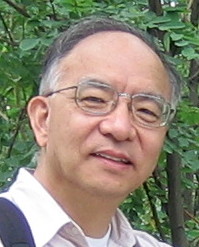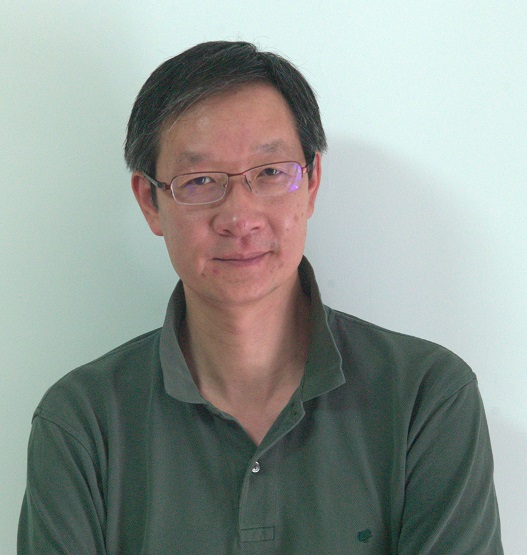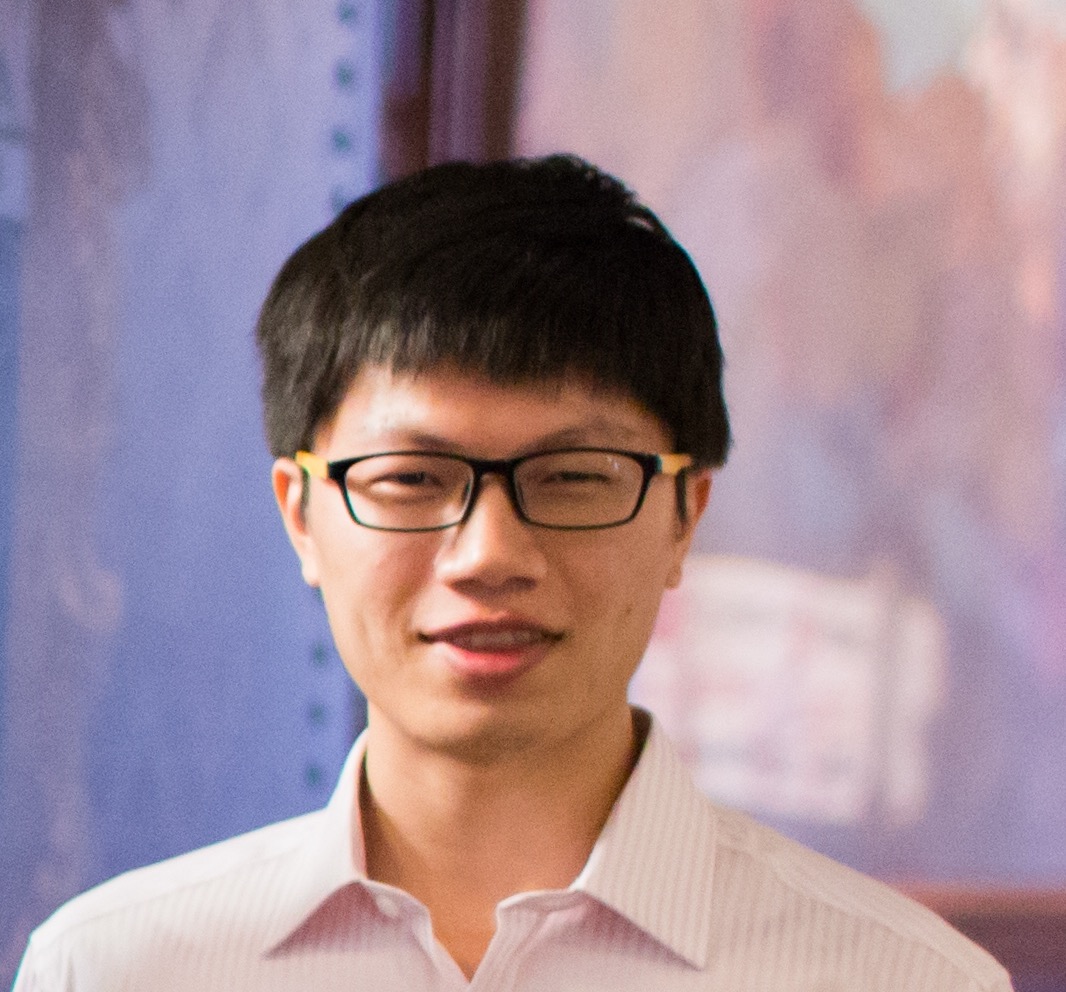Welcome to Deep Learning on Graphs for Natural Language Processing (DLG4NLP@NAACL’22)!
Hybrid: Seattle, Washington and Online
July 15, 2022

Jiawei Han is Michael Aiken Chair Professor in the Department of Computer Science, University of Illinois at Urbana-Champaign. He received ACM SIGKDD Innovation Award (2004), IEEE Computer Society Technical Achievement Award (2005), IEEE Computer Society W. Wallace McDowell Award (2009), and Japan's Funai Achievement Award (2018). He is Fellow of ACM and Fellow of IEEE and served as the Director of Information Network Academic Research Center (INARC) (2009-2016) supported by the Network Science-Collaborative Technology Alliance (NS-CTA) program of U.S. Army Research Lab and co-Director of KnowEnG, a Center of Excellence in Big Data Computing (2014-2019), funded by NIH Big Data to Knowledge (BD2K) Initiative. Currently, he is serving on the executive committees of two NSF funded research centers: MMLI (Molecular Make Research Institute)—one of NSF funded national AI centers since 2020 and I-Guide—The National Science Foundation (NSF) Institute for Geospatial Understanding through an Integrative Discovery Environment (I-GUIDE) since 2021.
Title: Towards Automatic Construction of Knowledge Graphs from Unstructured Text [slides]
Abstract: Graphs and texts are both ubiquitous in today’s information world. However, it is still an open problem on how to automatically construct knowledge graphs from massive, dynamic, and unstructured massive texts, without human annotation or supervision. In the past years, our group has been studying how to develop effective methods for automatic mining of hidden structures and knowledge from text, and such hidden structures include entities, relations, events, and knowledge graph structures. Equipped with pretrained language models and machine learning methods, as well as human-provided ontological structures, it is promising to transform unstructured text data into structured knowledge. In this talk, we will provide an overview on a set of weakly supervised machine learning methods developed recently for such an exploration, including joint spherical text embedding, discriminative topic mining, named entity recognition, relation extraction, event discovery, text classification, and taxonomy-guided text analysis. We show that weakly supervised approach could be promising at transforming massive text data into structured knowledge graphs.

Meng Jiang is currently an assistant professor at the Department of Computer Science and Engineering in the University of Notre Dame. He obtained his B.E. and Ph.D. from Tsinghua University. He spent two years in UIUC as a postdoc and joined ND in 2017. His research interests include data mining, machine learning, and natural language processing. He has published more than 100 peer-reviewed papers of these topics. He is the recipient of Notre Dame International Faculty Research Award. The honors and awards he received include best paper finalist in KDD 2014, best paper award in KDD-DLG workshop 2020, and ACM SIGSOFT Distinguished Paper Award in ICSE 2021. He received NSF CRII award in 2019 and CAREER award in 2022.
Title: Enhancing Language Generation with Knowledge Graphs [slides]
Abstract: Natural language generation is to learn p(Y|X) to create desired Y with a given X. It has many real-world applications. However, there are many possibilities that Y is too difficult to generate with just X. Then knowledge graphs can help – with tons of relational information that is uncovered by billions of humans over thousands of years. In this talk, we will provide an overview on the approaches that use knowledge graphs to improve the precision of neural machine translation, the factual correctness of abstractive summarization, the content diversity in commonsense reasoning, the accuracy in question answering, etc. We show that knowledge graph-enhanced language generation methods could be promising at many other types of important applications.

Zheng Zhang is a Senior Principal Scientist and the founding Director of Amazon Web Service (AWS) Shanghai AI Lab. He was full Global Network Professor of Computer Science in NYU Shanghai, where he also held an affiliated appointment with the Department of Computer Science at the Courant Institute of Mathematical Sciences and with the Center for Data Science at NYU's campus in New York City. He was a Principal Researcher and Research Area Manger in Microsoft Research Asia. Zheng holds a PhD from the University of Illinois, Urbana-Champaign, an MS from University of Texas, Dallas, and a BS Fudan University. Zheng was founder and advisor for various DL platforms such as MXNet, MinPy and most recently DGL, which brings deep learning practise to graph.
Title: Scaling out GNN Applications for NLP
Abstract: This talks begins with the motivation that drove me and my colleagues to invest in Graph Neural Networks: AWS Shanghai AI Lab owns the development of the open-source project Deep Graph Library (DGL), and we have a rich but focused research profile around GNNs, fanning into fundamental as well as important core AI application areas such as natural language processing and computer vision tasks. Then I will dive deeper into topics relevant to this workshop. I will share our early investigation that reveals Transformer is special form of GNNs, our modest attempt to bridge the gap between texts and graphs at sentence level, and our most recent effort in project GRED (Graph of Relation, Events and Discourse) which aims to extract and exploit various structures that are embedded in long document collections, and do so in a unified way. I will conclude with some key challenges and call for community's attention and effort.

Yu Su is an Assistant Professor at the Ohio State University and a Researcher at Microsoft Semantic Machines. He got his Ph.D. from University of California, Santa Barbara and his bachelor's degree from Tsinghua University. The overarching goal of his research is to democratize the access to data, knowledge, and intelligence through foundational and applied AI innovations, with a recent focus on conversational AI, knowledge graph construction, and reasoning. His work at Microsoft has led to a new conversational interface for Microsoft Outlook. He serves in leadership roles in multiple national AI institutes, including as Co-Lead of Foundational AI in the ICICLE AI Institute and as Lead of Machine Learning Foundations in the Imageomics Institute. His research has been recognized with awards such as Outstanding Dissertation Award from UC Santa Barbara and the third-place award in the inaugural Amazon Alexa Prize TaskBot Challenge.
Title: Will Graphs Lead to the Next Breakthrough of Conversational AI? [slides]
Abstract: Teaching machines to understand natural languages and converse with humans require expressive and flexible meaning representations, which makes graphs an appealing tool for conversational AI. However, only recently have we started to see explorations of the interplay between graphs and conversational AI. In this talk, I will discuss two recent lines of work in this space. I will first discuss a new formalism for task-oriented dialogues based on dataflow graphs, and how that makes it possible to represent fine-grained semantics in task-oriented dialogues and support rich multi-turn interactions. Towards more universal conversational interfaces that support a broad range of domains, I will then discuss recent efforts in developing question answering systems on large-scale knowledge graphs with millions of entities and billions of facts, and how the broad coverage of knowledge graphs reveals new challenges such as non-i.i.d. generalization and large search spaces, and our attempts to tackle those challenges. The talk will be concluded with discussion on promising future directions.
Get In Touch
| dlg4nlp.workshop@gmail.com |
- © DLG4NLP. All rights reserved
- Design: HTML5 UP